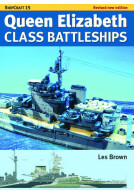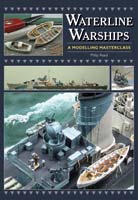The French Fleet (ePub)
Ships, Strategy and Operations 1870 - 1918

File Size: 190.1 MB (.epub)
Illustrations: 230 illustrations
ISBN: 9781526701336
Published: 30th August 2022
| Other formats available | Price |
|---|---|
| The French Fleet Hardback Add to Basket | £45.00 |
At the end of the 1870-1 Franco-Prussian war, the French Navy began to reconstruct its fleet, replacing old generation warships with steam-powered and iron-hulled men-of-war. However, the process was slow and erratic since priority was initially given to the Army. Additionally, the establishment of the Third Republic led to a long period of political and economic instability which affected naval and shipbuilding policy. French naval yards and private shipyards were committed to build a fleet of ironclads, cruisers and minor vessels and led France to become the second European naval power, at least quantitatively. The rise of the ‘Jeune Ècole’ (Young School) strategic naval concept in the early 1880s then changed shipbuilding priorities, and emphasis was given to coastal torpedo boats and cruisers while the construction of battleships was slowed. As a consequence, the French Navy implemented the dreadnought concept later than other European naval powers, namely Great Britain and Germany. The 1904 Entente Cordiale contributed to yet further radical changes to foreign, naval and shipbuilding policies, so that at the outbreak of World War One the French fleet was populated with limited dreadnoughts, many obsolete armoured cruisers, an impressive array of torpedo boats and a fleet of submarines whose efficiency was however questionable.
The book provides a complete overview of the French Navy from the establishment of the Third Republic to the end of World War One. French foreign and naval policy, shipyards and industrial organisation, technological innovations, operations and shipbuilding programmes are all described in the first part of the volume, while the second and larger part is focused on the different categories of warships, including their qualitative and quantitative evolution during the period of 1871–1918 and their employment during the Great War. A chapter is also dedicated to naval aviation.
Superbly illustrated with rare and carefully selected photographs, this major new reference book paints a clear and detailed overview of the French navy during this era and will stand as a vital companion to French Warships in the Age of Steam 1859–1914 published by Seaforth.
"Coverage of the ship classes is extensive and provides an assessment in most cases of the pros and cons of their development, capabilities and performance. The authors do not hesitate to offer criticism of matters and provide sound justification for their views. Overall, this book is a welcome addition to the history of the French Navy."
Nautical Research Journal - Volume 69 (2024)
“This book is well written and researched, drawing on extensive primary and secondary sources…a welcome addition to the history of the French Navy.”
The Nautical Research Journal
Read the full review here
"The book addresses many things not often found in other works, such as range-finding equipment or the shoreside logistics of the French fleet."
The NYMAS Review No. 93, November-December 2023
The assessment of emerging new ship types and their strategic roles is excellent, while the French Navy appears to have had an advantage over the Royal Navy in the quality of photography, and the dramatic appearance of French warships.
Naval Review
Read the Full Review Here
4 out of 5
Army Rumour Service (ARRSE)
It kept my interest throughout the read and I feel that I learned something from it, perhaps a lot more than I first realised.
Read the Full Review Here
This book is well written and researched, drawing on extensive primary and secondary sources. It analyses the French Navy’s development in a broad context addressing strategic, political, financial, naval administration, industrial and technological issues. The text is supported with numerous high quality photographs which appropriately illustrate the ships being discussed. Coverage of the ship classes is extensive and provides an assessment in most cases of the pros and cons of their development, capabilities and performance. The authors do not hesitate to offer criticism of matters and provide sound justification for their views. Overall, this book is a welcome addition to the history of the French Navy and its lessons have considerable relevance to current navies, their administration and their ability to influence and cooperate in the production of new ships.
Australian Naval Institute
Read the review here
This book is a very good descriptive and detailed history of the French Fleet combined with political ramifications caused by the collapse of successive governments and policy changes exerted upon the French Navy between 1870-1918.
Roger Coleman, The Wessex Branch of the Western Front Association
This excellent book is a worthy volume for those who have an interest in naval and maritime history. It covers a period of almost fifty years and is a systematic evaluation of the French Navy and is fleet during that time frame. The precise and detailed characteristics of the types and classes of French warships, submarines, ancillary craft, and aspects of naval aviation are a useful reference source. Despite constant government uncertainties, individual prejudices, and lack of foresight the French Fleet became a powerful deterrent to meet the challenges of the First World War. The authors in depth research, is accompanied by magnificent black and white photographs.
As Featured on Dr Alexander Clarke Does Naval History Live Youtube (Bruships 91 - 1:22:16)
Dr Alexander Clarke
As Featured In
Cher Ami, Great War Special Interest Group Newsletter - July 2022
Featured in:
Cher Ami, GWSIG Newsletter – International Plastic Modellers Society (UK) – March 2021
About Michele Cosentino
MICHELE COSENTINO is a retired Commodore in the Italian Navy. He has written extensively on naval policy and technical issues, his most recent book focusing on the design and operations of Italian aircraft carriers from 1912 to 2021.
About Ruggero Stanglini
RUGGERO STANGLINI contibutes to Italian defence magazines and he has written several books on naval affairs. Their book, British and German Battlecruisers, published by Seaforth, was received to critical acclaim.
















